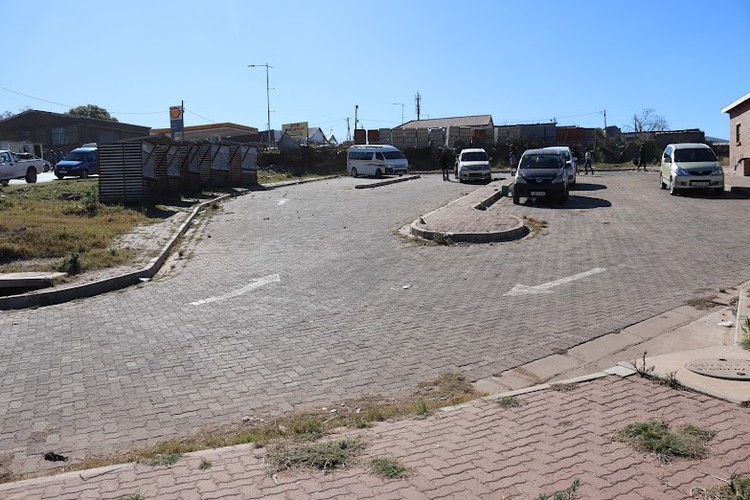
14 August 2024
The taxi rank has not been used because taxi drivers say it is too small to turn around in. During the day people operate a car wash there. Photo: Manqulo Nyakombi
Commuters in Tsomo in the Eastern Cape who have been waiting since 2019 for a functioning taxi rank, will have to wait at least two more years, while the cost of the project balloons from R5.8-million to more than R20-million.
According to the Eastern Cape Department of Cooperative Governance and Traditional Affairs spokesperson, Pheello Oliphant, the IntsikaYethu Local Municipality budgeted R5.8-million for the Tsomo Taxi Rank project, which was completed in June 2019.
The taxi rank has six flush toilets, a small office and five trader stalls. But the rank has never been used, because taxi drivers say it is too small to turn around in.
When GroundUp visited it a week ago, we found doors, windows, toilets and taps broken, and dirty clothes on the floor. Residents said the taxi rank is used by criminals after hours and early in the morning.
During the day it is used as a car wash by young people in the area.
IntsikaYethu Local Municipality spokesperson Zuko Tshangana said the municipality had applied for additional funding to pay for a canopy, fencing and an access road.
Oliphant said this second phase would cost R14.4-million.
Tsomo taxi association chairperson Sibongile Gwadela said taxis can’t make a U-turn in the space but drivers have agreed to use it if the municipality builds an access road.
He said they had been waiting for the access road since October 2021.
Gwadela said the taxi rank is badly needed. Most taxis pick up people on the side of the road. There is a small taxi rank at the Shoprite complex but the owner intends to develop the complex in that space, Gwadela said.
“This construction was finished in 2019. They are failing to do just two things, put up a canopy and build an access road,” he said.
The organiser of the taxi association, Mbuso Jaca, said they had informed the municipality very early that they were not happy with the structure of the taxi rank.
Oliphant said the site was in a rocky area and had limited space. He said now that the council had approved phase two, the area would be extended “according to the needs of the taxi operators and to accommodate more combi taxis”.
He said phase two would be implemented in the 2025/26 financial year.
Toilets have been vandalised. Photo: Manqulo Nyakombi